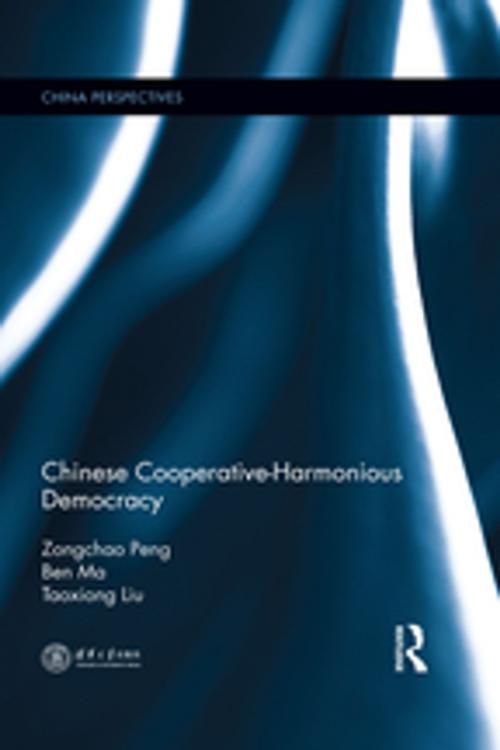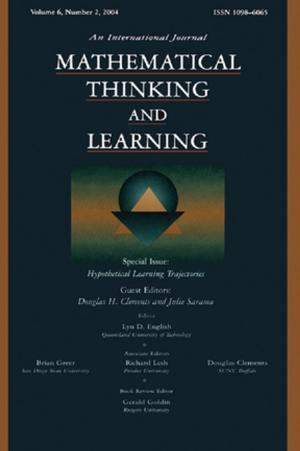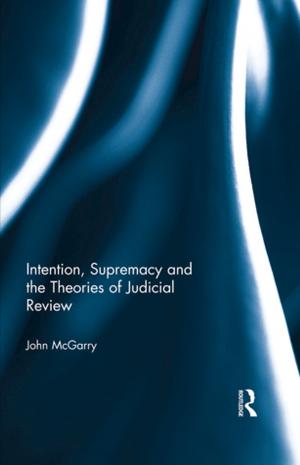Chinese Cooperative-Harmonious Democracy
Research on Chinese Cooperative-Harmonious Democracy
Nonfiction, Social & Cultural Studies, Political Science, Government| Author: | Zongchao Peng, Ben Ma, Taoxiong Liu | ISBN: | 9781317479833 |
| Publisher: | Taylor and Francis | Publication: | December 1, 2016 |
| Imprint: | Routledge | Language: | English |
| Author: | Zongchao Peng, Ben Ma, Taoxiong Liu |
| ISBN: | 9781317479833 |
| Publisher: | Taylor and Francis |
| Publication: | December 1, 2016 |
| Imprint: | Routledge |
| Language: | English |
After several decades of reform and opening up, China has come to a critical period of transformation and development. How to improve the development strategies to effectively promote China's democratic politics has once again attracted the world's attention.
This book compares the commons and differences between western and Chinese theories and practices of democracy model, and proposes a new democracy model for China's political reform — "cooperative-harmonious democracy". Absorbing the core values of democracy, this model draws on Chinese traditional "harmony and cooperation" and "people-oriented" thought, as well as modern cooperative game theory. More importantly, it adopts the new model to analyse some present practice cases in China, involving intra-party democracy, electoral democracy, and deliberative democracy.
This book is a valuable theoretical innovation and a significant achievement in promoting the interdisciplinary research of political science and public management. It strategically reflects on how to promote the development of cooperative-harmonious democracy from the perspective of high-level design. The policy suggestions it proposed will be a valuable reference for policy-makers.
After several decades of reform and opening up, China has come to a critical period of transformation and development. How to improve the development strategies to effectively promote China's democratic politics has once again attracted the world's attention.
This book compares the commons and differences between western and Chinese theories and practices of democracy model, and proposes a new democracy model for China's political reform — "cooperative-harmonious democracy". Absorbing the core values of democracy, this model draws on Chinese traditional "harmony and cooperation" and "people-oriented" thought, as well as modern cooperative game theory. More importantly, it adopts the new model to analyse some present practice cases in China, involving intra-party democracy, electoral democracy, and deliberative democracy.
This book is a valuable theoretical innovation and a significant achievement in promoting the interdisciplinary research of political science and public management. It strategically reflects on how to promote the development of cooperative-harmonious democracy from the perspective of high-level design. The policy suggestions it proposed will be a valuable reference for policy-makers.















